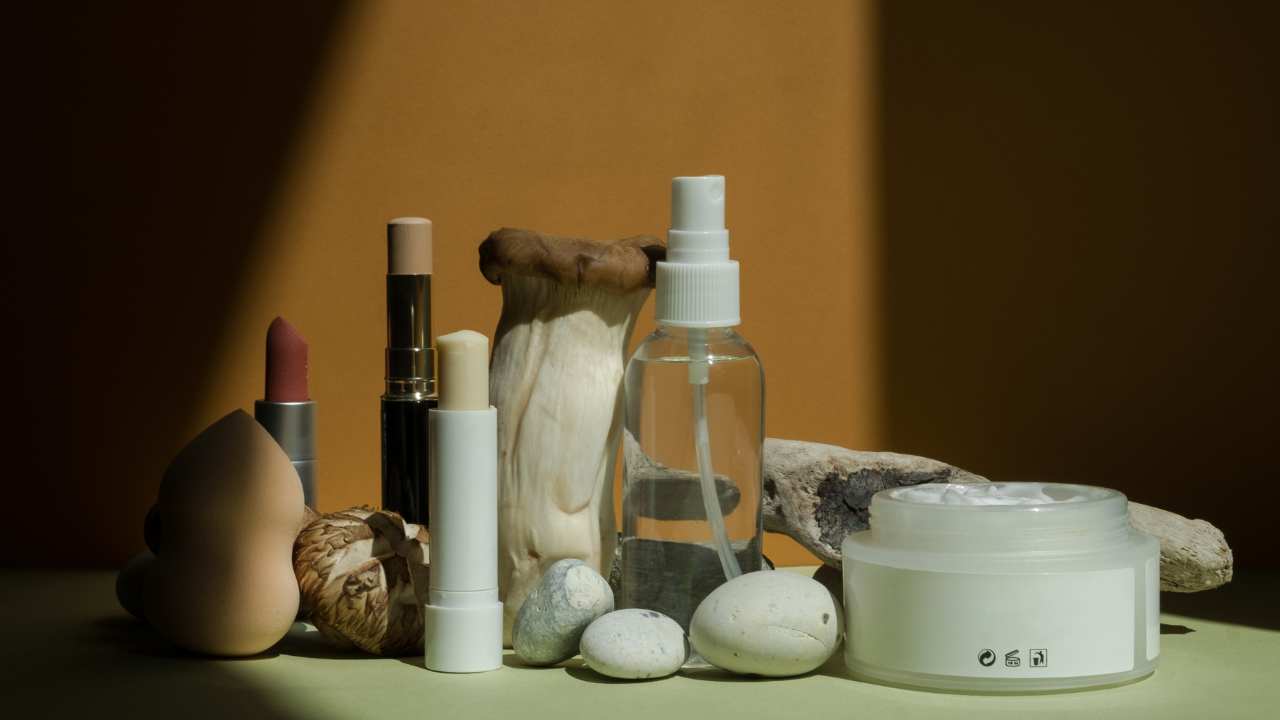Waterless skincare is a relatively new and innovative approach to skincare that focuses on creating products that don’t rely on water as a primary ingredient. While traditional skincare products are often water-based, waterless alternatives aim to harness more concentrated, natural, and effective ingredients that deliver immediate benefits to the skin.
In this blog post, we will explore the science behind waterless skincare, its benefits, and how it can change your skincare routine for the better.
Understanding Waterless Skincare
Waterless skincare refers to skincare products that don’t contain water as a primary ingredient. Instead, they are packed with potent, concentrated ingredients like oils, butters, and extracts. The goal is to provide the skin with more active ingredients without diluting them with water, which is commonly used in traditional products to achieve the desired texture and consistency.
Waterless skincare products may include facial oils, serums, cleansers, masks, and moisturizers that are all formulated without water. These products are becoming increasingly popular due to their effectiveness and eco-friendly nature.
Why is Waterless Skincare Gaining Popularity?
- Environmental Benefits: One of the most significant reasons for the rising popularity of waterless skincare is its environmental impact. By using fewer water-based products, companies reduce the amount of water consumed in production. Furthermore, waterless formulations require less packaging, making them more sustainable and eco-friendly.
- Concentrated Formulas: Waterless skincare products tend to be more concentrated than traditional products. Without water diluting the active ingredients, users can experience faster and more noticeable results. These products often contain natural oils, butters, and plant-based extracts that are rich in vitamins and antioxidants, which can nourish the skin deeply.
- Suitable for All Skin Types: Waterless products are suitable for almost every skin type, whether you have dry, oily, or sensitive skin. The concentrated ingredients in these formulations are often gentler and more nourishing, making them ideal for people with sensitive skin.
- Minimal Ingredients: Because they don’t require water, waterless skincare products are often formulated with fewer ingredients. This helps reduce the risk of irritation and makes it easier for consumers to avoid synthetic additives or preservatives that might cause adverse reactions.
Key Benefits of Waterless Skincare
- Long-Lasting Hydration: Unlike water-based moisturizers that can evaporate quickly, waterless products such as oils and balms help to lock moisture in, offering prolonged hydration throughout the day.
- Reduced Irritation: Waterless skincare typically contains fewer preservatives and artificial additives. This is great news for those with sensitive skin, as it reduces the chances of irritation or allergic reactions.
- Enhanced Skin Health: With the high concentration of active ingredients, waterless skincare products can provide deep nourishment to the skin, improving its overall texture, tone, and appearance over time.
- Eco-Friendly: As mentioned earlier, waterless skincare products are not only more concentrated, but they also require less packaging, making them more eco-conscious. Many brands are also embracing recyclable or compostable materials for packaging, further reducing their environmental footprint.
Common Waterless Skincare Products
- Waterless Cleansers: These cleansers don’t require water for activation. They typically come in the form of balms, oils, or wipes, and they cleanse your skin without stripping away essential moisture.
- Waterless Moisturizers: These moisturizers often contain oils, shea butter, or other rich emollients that provide long-lasting hydration without the need for water.
- Facial Oils: Waterless facial oils provide intense hydration and nourishment by delivering concentrated oils directly to the skin. They are ideal for those with dry skin.
- Waterless Masks: These masks often come in the form of anhydrous (without water) formulas that are packed with antioxidants, essential fatty acids, and other beneficial ingredients to deeply nourish and revitalize the skin.
How to Incorporate Waterless Skincare Into Your Routine
Transitioning to waterless skincare is simple, and you can start by substituting your traditional water-based products with waterless alternatives. Here’s a sample skincare routine using waterless products:
- Cleanser: Start with a waterless cleanser, such as a cleansing balm or oil. Gently massage it into your skin to remove dirt, makeup, and impurities.
- Serum: Apply a waterless serum that targets specific concerns like wrinkles, dark spots, or dullness.
- Moisturizer: Follow up with a waterless moisturizer or facial oil to lock in hydration and keep your skin feeling soft and nourished.
- Eye Cream: If needed, apply an eye cream formulated without water to address puffiness, dark circles, and fine lines.
- Face Mask: Finish your routine with a waterless face mask for deep hydration and nourishment.
Waterless Skincare Myths
- It’s Only for Dry Skin: While waterless skincare is great for dry skin, it can benefit all skin types. Oily and combination skin types can also benefit from concentrated products that won’t leave the skin feeling greasy or clogged.
- Waterless Products Are Expensive: Although waterless skincare products may appear more expensive, they are often more cost-effective in the long run due to their concentrated formulas. A little goes a long way, making these products last longer.
- Waterless Products Are Not Effective: Waterless skincare products are designed to deliver concentrated nutrients to the skin, making them highly effective. In many cases, they can provide faster and more noticeable results compared to traditional water-based products.
Q&A: Waterless Skincare
Q1: Can waterless skincare products replace all my existing skincare products? A1: Waterless skincare products can often replace traditional products, but it’s important to choose the right products for your skin type and concerns. For example, you may still need a gentle water-based cleanser for specific needs, but other waterless products can replace moisturizers, serums, and masks.
Q2: Are waterless skincare products suitable for sensitive skin? A2: Yes, many waterless skincare products are ideal for sensitive skin due to their minimal ingredients and lack of harsh preservatives. However, always check the product label to ensure it’s free from any potential irritants.
Q3: Do waterless skincare products last longer? A3: Since waterless products are more concentrated, they tend to last longer. A little bit goes a long way, and you don’t need to use as much as you would with traditional products.
Q4: Can waterless skincare help with acne? A4: Waterless skincare can help with acne by providing gentle, non-stripping hydration. Look for waterless products that include ingredients like tea tree oil or salicylic acid, which are known for their acne-fighting properties.
Conclusion
Waterless skincare is an exciting and sustainable approach to taking care of your skin. By eliminating water and focusing on highly concentrated, nourishing ingredients, these products provide effective and long-lasting results. Whether you’re looking to reduce your environmental impact, improve your skin’s texture, or simply try something new, waterless skincare offers many benefits that make it worth exploring.
If you’re ready to make the switch, consider incorporating some of these products into your routine and experience the benefits of a waterless skincare regimen.




